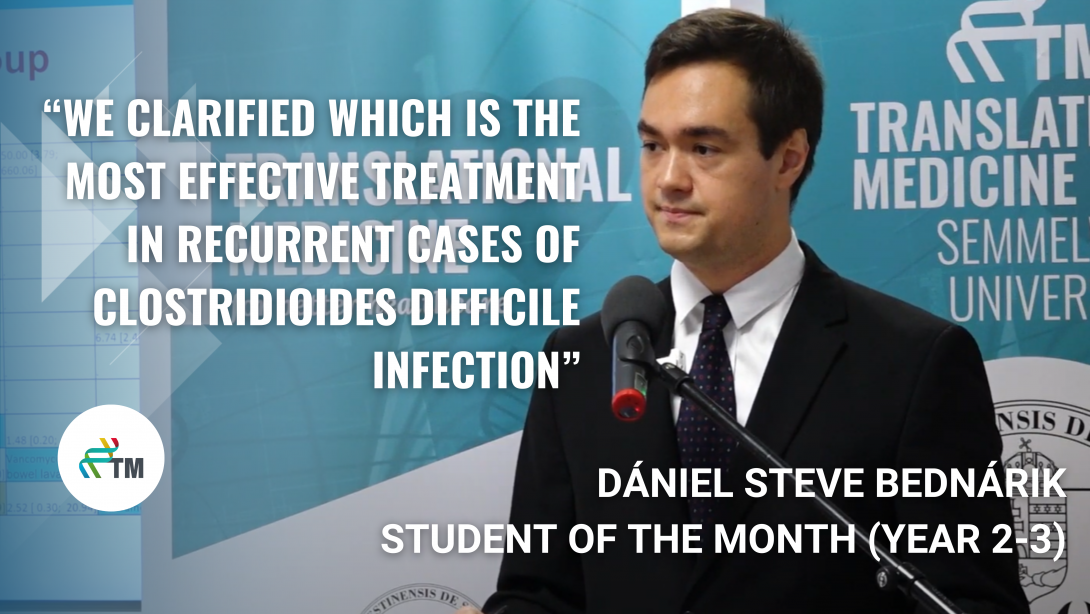
He is a third-year Ph.D. student in the Gastroenterology Group, who always shows dedication and humbleness. He has recently published his excellent study about adult Clostridioides difficile infection in The Lancet Regional Health – Europe Journal, and is already formulating his research on children. In December, Dániel S. Bednárik was named Student of the Month (Year 2-3) at the Centre for Translational Medicine.
Dr. Bednárik is a pediatric resident at the Heim Pál National Pediatric Institute, but because of his topic, he continues his research as a member of the Gastroenterology Group. „Joining CTM was recommended by many academics, including my future supervisors, who stressed the importance of doing research alongside clinical work. I was also aware that many pediatricians at Heim Pál Hospital had already joined the program, and I had many discussions with them about the training.”
Since Dr. Bednárik has a special interest in gastroenterology and infectology in addition to pediatrics, and his supervisors have a strong interest in the microbiome, they were looking for a research topic that covered these areas. “We focused on Clostridioides difficile infection because I spent a lot of time in the gastroenterology department during the first two years of residency training, and found that this infection was more common among children, than earlier I expected, especially if they had inflammatory bowel disease. Since Clostridioides infection in adults is always a serious problem, in my first project, we compared the effectiveness and safety of different therapies against it in their cases. In my second project, we are focusing on pediatric patients with Clostridioides infection.”
The results of Dr. Bednárik's first project were recently published in The Lancet Regional Health - Europe Journal. In this research, the results of nearly 30,000 patients were evaluated, and it was found that fecal microbiota transplantation is the most effective treatment in recurrent cases. From the meta-analysis, the researchers were also able to determine which antibiotics are the most effective in non-recurrent cases. The role of probiotics in prevention was also investigated, but the results were not clear, so further studies are needed to clarify this question. The researchers have not yet started this research, but Dr Bednárik's second study is already underway. In that project, he is comparing the efficacy and safety of different therapies in Clostridioides difficile infection in pediatric patients. In this study, the researchers hypothesize that fecal microbiota transplantation will also provide better results than antibiotic therapy.
(Szabó Emese)